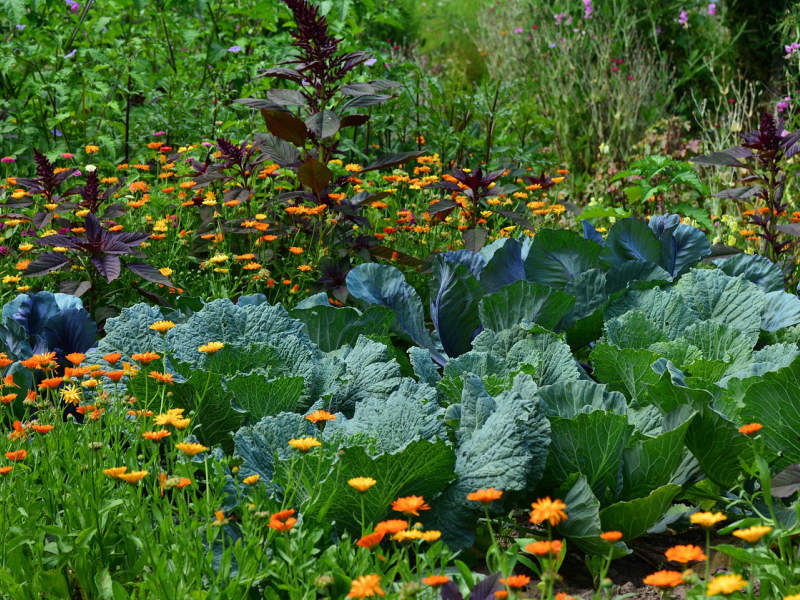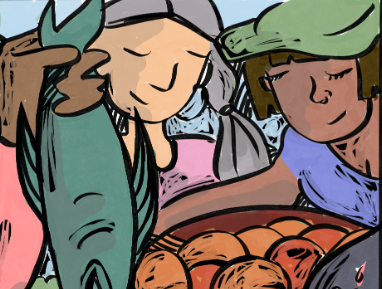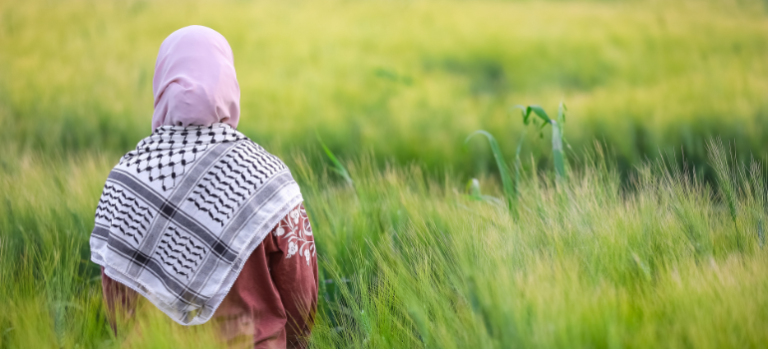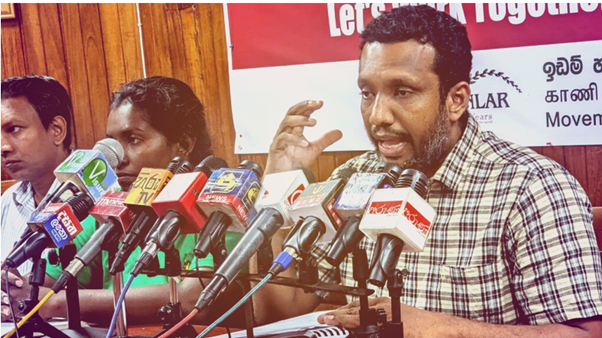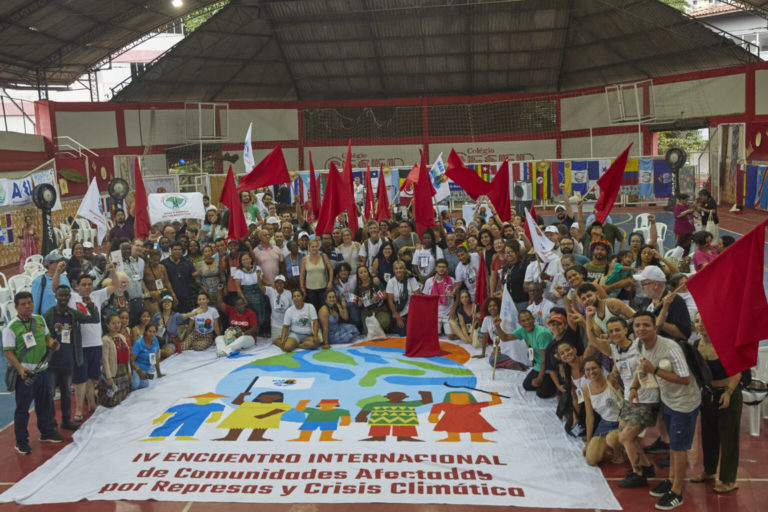Agroecology for food sovereignty
Which agroecology for peasants’ and rural workers’ rights – Introduction by Defending Peasants’ Rights
We are reproducing a publication by Friends of the Earth International which aims to define an agroecology for food sovereignty. Agroecology, food sovereignty and peasants’ rights are closely linked. Together, they form a political and practical basis for both fighting the dominant and destructive capitalist agricultural system, and for building other agricultures and food production systems now. Food sovereignty and agroecology are enshrined in the Declaration thanks to the efforts of La Via Campesina and its allies during the UN negotiations.
Now that these two concepts are attached to the rights of peasants, we must ensure that they are not hijacked from the meaning given to them by the rights holders. Defenders of the capitalist system have already demonstrated their ability to reuse and empty oppositional political concepts of their meaning. To counter this, we must continue to define these concepts and disseminate these definitions.
The definition proposed here by Friends of the Earth International corresponds to the political vision put forward by La Via Campesina during the UNDROP negotiations, and should therefore be referred to when reading and implementing UNDROP. The term agroecology appears twice in UNDROP, in articles 17 and 20, respectively on the rights to land and biodiversity. In both cases, it refers to States’ obligations to promote and protect agroecological practices. When using these articles, we can all refer to the publication reproduced below.
Agroecology for food sovereignty
Agroecology is a way of producing food, a way of life, a science and a movement to transform food systems towards ecological, social, gender, economic, racial and intergenerational justice.
This definition comes from the landmark Nyéléni Declaration. In 2015, organisations and international movements of small-scale food producers, workers and consumers gathered in Nyéléni, Mali. They agreed a common understanding of agroecology as crucial to building Food Sovereignty. They also developed a joint vision to promote it.
Agroecology has grown from the practices, knowledge, innovation and research of peasants, family farmers, indigenous peoples, fisherfolks, pastoralists and many other small-scale producers.
A way of producing food
Agroecological practices follow natural processes of self-sustaining production. For example: intercropping, traditional fishing, pastoralism, integrating crops, trees, livestock and fish, manuring, compost, local seeds and animal breeds. This results in a greater diversity of crops and breeds, drastically reduces the use of externally-purchased inputs, and recycles nutrients. It also negates the use of agrotoxics, antibiotics, artificial hormones, Genetically Modified Organisms (GMOs) and other dangerous new technologies.
Agroecology has obvious benefits. For example, reduced costs, autonomy from corporations, diversified income streams, risk management for crop failures, and varied produce to improve nutrition. It also has the potential to regenerate ecosystems devastated by industrial farming.
A science
Agroecology provides a living, coherent, transdisciplinary and holistic framework through which to study its practices and outcomes. This includes peoples’ diverse knowledge and ways of knowing. It helps us to understand how food systems must adapt to and restore the biocultural systems on which they depend.
A way of life or socio-economic system
Agroecology values the life of peoples and planet over profits. It is based on a long-term vision that goes beyond agriculture, to transform the whole food system. It draws on social, economic, political and ecological disciplines and integrates them with ancestral and customary knowledge and practices of peasants, Indigenous Peoples and other small-scale food providers. Agroecology is based on shared principles, practiced according to the reality and culture of each territory, while respecting nature and common, shared values.
- For example, it reshapes markets based on equity, solidarity and the ethics of responsible production and consumption, promoting direct and fair short distribution chains. It creates space and power for women and youth to take leadership. It ensures justice and dignity for workers.
- It implies the full recognition of the self-determination and autonomy of peoples and it is built on the pillars of collective rights and access to the Commons.
A social movement
Agroecology actively challenges and transforms structures of power in society. It puts the control of seeds, biodiversity, land and territories, waters, knowledge, culture and the commons in the hands of the peoples, to achieve food sovereignty. It is led by peasant, family, indigenous and artisanal food producers, and workers and their allies.
This growing movement seeks to completely transform our food systems rather than reform industrial models. The struggle for gender justice and dismantling patriarchy is also fundamental, as a pathway to achieving women’s autonomy and rights. Collective action will enable scaling-up of agroecology, build local food systems, and challenge the corporate control of our food system.
Agroecological practices are based on a range of principles such as:
- for peasants, family farmers and other small-scale food producers: diversifying crop varieties, local seeds and livestock breeds; integrating crops, trees, livestock, fish; applying manure and composting; enhancing biological interaction throughout the system; minimising use of non-renewable external resources and inputs (for example for nutrients and agrotoxics); minimising dependency on fossil fuels; rainwater harvesting; community ecosystem monitoring; solar food drying and storage; community forest management.
- for traditional, artisanal or small-scale fisheries: community-based management to conserve and regenerate fish populations, fishing grounds, coral reefs, mangrove swamps and other fish habitats.
- for traditional migratory and cross-border pastoralism: conservation of grazing territories and their utilisation for meat, milk, fibre, fuel and other.
- for forest dwellers: living by the diversity of non-timber forest products and preserving biodiversity.
- for Indigenous Peoples: access to natural resources in their territories, in particular for hunting and gathering.
Recognition and practice of agroecology
Several scientific and UN reports recognise the transformative potential of agroecology to feed the world and replace the destructive industrial food system.
“Agroecology [offers] multiple benefits, including for increasing food security and resilience, boosting livelihoods and local economies, diversifying food production and diets, promoting health and nutrition, safeguarding natural resources, biodiversity and ecosystem functions, improving soil fertility and soil health, adapting to and mitigating climate change, and preserving local cultures and traditional knowledge systems.” – Chair of the Second International Symposium on Agroecology, April 2018.
Explore our agroecology map to learn about how people are practicing agroecology around the world.

